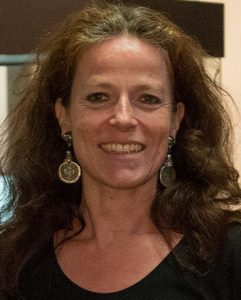
Bettina Bannasch, Prof. Dr., professor of modern German literature at the University of Augsburg. Her main areas of work and research include German-Jewish literature, cultural and literary memory research, intermediality in adult and children’s literature, German-language literature in Southeast Europe. She is co-editor of the Exile Research Yearbook. Publications on German-language literature from the early modern period to the present. Her recent publications include: Zukunft der Sprache – Zukunft der Nation? Verhandlungen des Jiddischen und Jüdischen im Kontext der Czernowitzer Sprachkonferenz. Berlin: De Gruyter (Conditio Judaica 97), zus. m. Carmen Reichert, Alfred Wildfeur; Darstellung, Vermittlung, Aneignung – Zu gegenwärtigen Reflexionen des Holocaust, zus. m. Hans-Joachim Hahn, Göttingen: Vandenhoeck & Ruprecht 2018; Handbuch der deutschsprachigen Exilliteratur. Von Heinrich Heine bis Herta Müller, hg. zus. m. Gerhild Rochus, Berlin/Boston: de Gruyter 2013, 2. Aufl. 2016.
Abstract:
Ladies philosopher and salon lady – Martin Buber and Auguste Hauschner
Auguste Hauschner was a successful German-Czech author around 1900 who lived in Prague and Berlin. She owes her place in literary history above all to Max Brod, who portrays her in his book about the “Prague Circle” as its amiable, if somewhat spinsterish, precursor.
Hauschner maintained a salon in Berlin and was in lively exchange with authors and philosophers of her time, as well as with key representatives of the women’s movement, especially with Hedwig Dohm. Hauschner knew Buber personally, how close this contact was remains to be investigated. However, it can be assumed that the connection mainly existed through reading his writings and through mutual acquaintances and friends. There was a close relationship with Gustav Landauer, whom Hauschner supported as a patron and from whom she took lessons in philosophy for a while. She also formed a close friendship with her cousin Fritz Mauthner; the extensive and informative correspondence has been handed down. Mauthner repeatedly warned them not to succumb to the lure of the renewed Judaism, but to remain true to a liberal atheism – while Max Brod boasted in his letters to Hauscher that he had (re)won her to Judaism.
The article wants to explore the role that Martin Buber and his philosophy played for Hauschner, especially in respect to her own view of Judaism, in which women’s emancipation and Jewish emancipation are closely intertwined.

